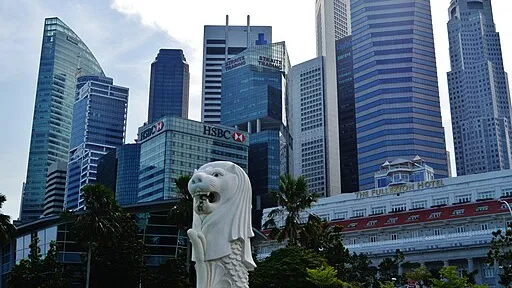
Why Singapore now has a delicate balance of power amongst office landlords and tenants
Neither are in a position of dominance, according to analysts.
In all the four quarters of 2024, Q4 showed the slowest rental growth with Prime Grade office rents in the Raffles Place / Marina Bay precinct increasing by a mere 0.1% q-o-q to average S$11.36 psf pm, according to data from Knight Frank.
On a full year basis, rents rose 2.1%, slowing from the 4.1% growth recorded a year ago. Overall, the expansion in rents was largely held in check by occupiers renewing at existing premises, adopting a conservative business outlook in light of unrelenting global uncertainty.
Here’s more from Knight Frank:
Occupancy levels of prime buildings in the Raffles Place / Marina Bay precinct and in the overall CBD remained stable, with both recording a healthy level of 93.6%. A year ago, the occupancy level in the CBD was 94.8%, and the slight easing was largely attributed to the completion of IOI Central Boulevard Towers, where about 75% of the 1.2 million sf space is currently filled. Most quality office spaces in the CBD remained tight as landlords prioritised building occupancy amid an occupier market where most do not have mandates to expand.
Demand Drivers
Many businesses have been and remain cautious in allocating resources for relocation into new premises, given the material cost of moving in an era of inflation. Nonetheless, some office users have been relocating into newer and better quality buildings as opportunities arise, taking up either the same amount of space or to right-size by incorporating hybrid work arrangements. Should business growth result in additional headcounts going forward, occupiers have the option of adjusting hybrid work practices to accommodate the expansion.
Landlords are also increasingly willing to incentivise such moves by selectively providing office fit-outs among smaller occupiers. There is now a delicate balance of power among landlords and tenants where neither are in a position of dominance. Landlords are open to adjusting rental expectations, especially for buildings with pockets of available space or where larger space users downsized.
There is also a lack of a dominant industry sector, such as the finance or technology sectors in the past, that had previously signed onto large tracts of office space in aggressive expansion modes. Throughout 2024, smaller legal, finance and consultancy firms took up some of the spaces vacated by bigger occupiers. Nevertheless, falling interest rates might contribute to cautious business growth and consequent demand for better quality facilities in the year ahead.
In the co-working space, WeWork announced that it will not continue operating in two office buildings. Three floors at Manulife Tower already ceased operations, and the other three storeys at UE Square will stop operations next year. Despite WeWork’s withdrawal from these buildings, demand remains supported by smaller occupiers.



















 Advertise
Advertise





